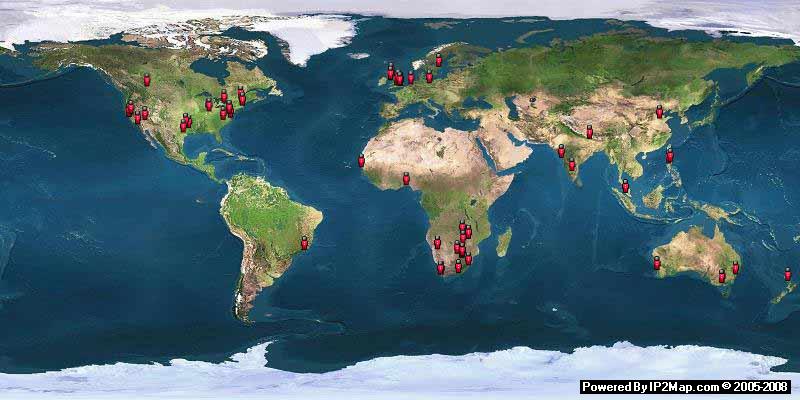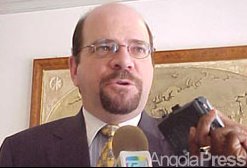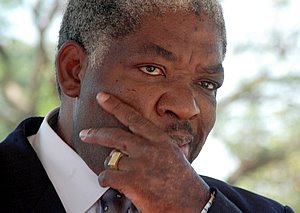| Presentation by Geoffrey Nyarota, Managing Editor of The Zimbabwe Times.com in Medellin, Colombia, on Friday May 4, on the occasion of the commemoration of World Press Freedom Day. I WISH to start by saying, "Gracias", to UNESCO for extending an invitation and for availing me the opportunity to participate in this very important forum on the momentous occasion of the commemoration of World Press freedom Day. I was requested to prepare a presentation for this session of the conference which addresses the important issue of what action should be taken to promote the safety of journalists. Having made the necessary preparation, I was advised, much to my dismay, just before the beginning of the session that, in making their presentations, panelists would be restricted to only five minutes each in the interests of time. It is not possible for me to compress that presentation into five minutes, while doing full justice to an issue which touches on the very survival of members of my profession. I am therefore putting my prepared presentation aside in order to make a short statement on a matter that I believe to be of crucial importance. If you detect a certain frustration in my statement your observation will be quite accurate. I am going to be deliberately provocative, though. I will, however, do my very best, Madam Chair (Catherine Gicheru of Kenya), to respect your time restriction. As a rule, journalists are fascinated by statistics. We always seek to impress with our profound knowledge of statistical data, much of it downloaded from the Internet moments before we show it off. I will cite an example. I will dazzle you with shocking statistics about my country. Zimbabwe attained nationhood as an independent state in 1980. We inherited from our former colonial rulers a country that was rich and prosperous, although it was emerging for a protracted period of guerilla warfare and international economic sanctions. Our immediate challenge was to rebuild our war-torn nation, while restoring it to peace, dignity, full democracy and prosperity. We were determined to achieve success. Our new leader, Mr Robert Mugabe, was a man of rare qualities and determination. We regarded him as a national hero. On the international scene he was held in equally high esteem as a world statesman. As I stand before this august gathering today, some of those early ideals, expectations and optimistic objectives are now confined to the annals of our short history. The Zimbabwe story has become one of tragedy and suffering. Today an estimated 3 million of Zimbabwe's population of 14, 5 million live outside their country as economic and political refugees. They will be found in large numbers in South Africa, the United Kingdom, the United States, Canada, Australia and further afield. The majority of citizens, who remain inside the country, live in abject poverty. Through the poor economic planning of the same Mr Mugabe's government, they now experience serious shortages of essential commodities, such as basic food. There is a serious shortage of foreign currency to import petroleum products. As a result there is a thriving black market for both foreign currency and for petrol. The official rate of exchange is one US dollar to $250 Zimbabwe dollars. On the black market, where even cabinet ministers conduct business, the amount currently fluctuates between $2 500 and $3 000. It may be of interest to you to know that 27 years ago the Zimbabwean currency was slightly stronger than the US dollar. More statistics – the rate of unemployment currently stands at more than 80 percent, while at more than 2 300 percent Zimbabwe's rate of inflation is the highest in the world. The second highest inflation is that of Iraq, a country at war for the past four years. Even then, I believe Iraq's rate of inflation is well below 50 percent. More than 20 000 innocent Zimbabweans were massacred in an orgy of violence unleashed by government in what was early evidence of Mr Mugabe's intolerance to opposing political views. Meanwhile, in the same spirit of intolerance, four newspapers have been banned by the government, including The Daily News, the newspaper of which I was the founding editor back in 1999. Now, for a country that was destined for peace and prosperity only 27 years ago, these are, indeed shocking statistics. But my question to you is, "How many among you have ever stopped to think what the closure of newspaper actually entails in terms of human suffering." But before I put that question, let me state that when I leave this conference, one very brief statement will be printed indelibly in my mind. It was a statement made by Mr Julio Munoz, executive director of the Inter-American Press Association, IAPA. Speaking in the session immediately before this one he said: "More action, less rhetoric." Brief statement, profound meaning. Journalists are trained and paid to write. I have since discovered that we also love to talk – just like the politicians, whose rambling speeches we so love to despise. Over the past two decades I have attended many media conferences. At these conferences we have dedicated and re-dedicated ourselves to continuing to wage the campaign for press freedom and democracy. But authoritarian politicians have since discovered that we are mere talkers. They explore that weakness to their benefit and to our utter undoing. In my book, Against the Grain, I named Chapter 12, "The sword is mightier than the pen", a cynical play with the famous saying, "The pen is mightier that the sword." I have become skeptical about that. As I stand before you, I am living testimony to the insecurity and vulnerability of journalists in my part of the world. If the situation of press freedom in my country was free I would be back in Zimbabwe today. I would be celebrating the run-away success of the award-winning Daily News with the paper's staff and with it's readers. Instead I live in exile. Not only was the paper's printing press bombed; the paper itself was banned. The paper's journalists were harassed and arrested on spurious charges. As the editor I was arrested several times. I was publicly declared an enemy of the state and received death threats. An assassin was hired to execute me. Fortunately, his conscience got the better of him. The paper was very effectively infiltrated by government agents. I was eventually driven into exile. People tell me, now that it's no longer there, that they now realize or appreciate what a crucial role The Daily News played in the campaign to restore democracy to Zimbabwe. Sometimes mankind does not appreciate the value of freedom until that freedom is taken away. More sadly, rarely do professional colleagues, friends and those of my compatriots that I communicate with ever to stop to ask how I survive in the Diaspora. They somehow assume that the United States has some mechanism that automatically guarantees the sustenance of editors or other journalists arriving on its shores after fleeing from the ravages of one Third World dictator or another. But, let me assure you, no journalist from the Third World should arrive at The New York Times or other US mainstream publication with a starry-eyed expectation to be shown to their new desk just because they are refugees fleeing from persecution. Many of these papers say they are cutting down on editorial staff, anyway. When this truth eventually dawned on me I hit on an enterprising idea – launch a Zimbabwe-based news website for the benefit of the millions earlier referred to and of those Zimbabweans in the homeland who are fortunate enough to have access to the Internet. Such venture would hopefully also create gainful occupation for some of those jobless or grossly underpaid journalists still in the country. When I attempted to canvass for sponsorship for what I considered to be a worthwhile venture in the national interest, I was in for disappointment. I was told in more than one case that to qualify for any assistance I would have to be based back in the country. I could not believe my ears. Undaunted the project proceeded, courtesy of the charitable intervention of patriotic and progressive friends. Much to my wife's consternation, our own meager family resources have constantly been exploited to ensure that our correspondents inside Zimbabwe are adequately compensated for their enterprise and courage. The closure of The Daily News entailed loss of employment for more than 300 bread- winners. But how many of you gathered here today have ever proceeded beyond the statistics to consider what this instant loss of income entails; what it means to be suddenly without income to pay for shelter, for food for the family, for transport, for clothing or for school fees for the children? Cynically, this situation arises, not because the journalist has failed to perform in his or her job, but because he or she has been excellent or outstanding, much to the chagrin of a non-performing ruling elite. We are talking here about loss of income, not just for one month or so but, in the most extreme cases, for more than three years now. Many of those journalists who have left the country now survive by working in menial jobs, far removed from the hustle and bustle of the newsroom. Instead, some now take care of patients in homes for the aged. Not only does this break the back of once powerful journalists; it also breaks their proud spirit. How many of you here today have ever stopped to consider what it means to the spouse or the children when the head of a family is arrested, tortured, jailed or murdered? To me these are the real issues of safety of journalists. Is there safety after persecution. Meanwhile, Mr Mugabe continues to inflict anguish and injury on those journalists who still go about discharging their lawful duty while working in Zimbabwe's shrinking independent press. Over the past two months one journalist, Edward Chamboko was murdered. This is the first time a journalist has been killed in Zimbabwe. Two others, Tsvangirayi Mukwazhi, the award- winning photographer of the United States-based The Zimbabwe Times, and Gift Phiri, a correspondent for the United Kingdom-based The Zimbabwean were arrested. Both were severely assaulted while in police custody. The large number of internet-based Zimbabwean publications now flourishing on the internet bears testimony to the indomitable spirit of the country's journalists in the face of remarkable hardship and persecution. Meanwhile, Mr Mugabe continues to willfully subject journalists to torture with Total impunity and arrogant disdain. Since I attended my first media conference More than 20 years ago countless resolutions have been passed by various media organisations. Meanwhile, the state of insecurity among the enterprising and valiant journalists of my country has actually deteriorated significantly. Ladies and gentlemen, thank you very much. (Geoffrey Nyarota is the laureate in 2002 of the UNESCO/Guillermo Cano World Press Freedom Award. This year' award was presented posthumously on wednesday to Anna Politkovskaya, the Russian investigative journalist who was gunned down in cold blood in October 2006. Nyarota has won nine other international journalism awards, including the World Association of Newspapers' Golden Pen of Freedom Award (2002), the Media Institute of Southern Africa's Press Freedom Award (2001), the Commonwealth Press Union's Terry Pierce-Goulding Memorial Award (1989) and the National Association of Black Journalists of America's Percy Qoboza Memorial Award (1989 and 2004).) |
Yahoo! Mail is the world's favourite email. Don't settle for less, sign up for your free account today.











No comments:
Post a Comment